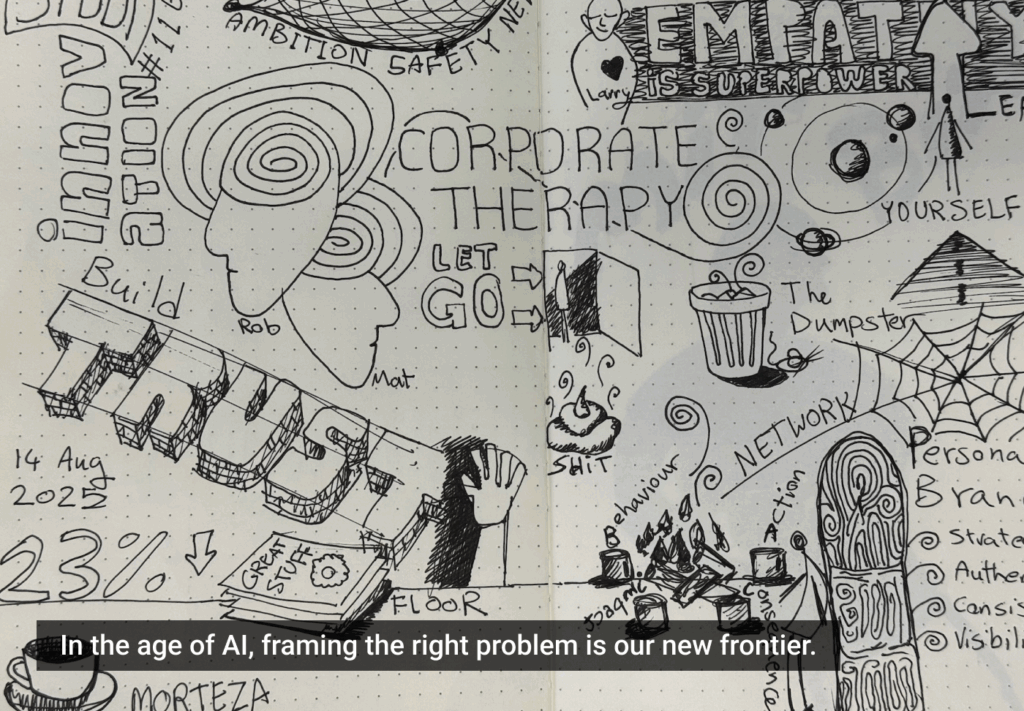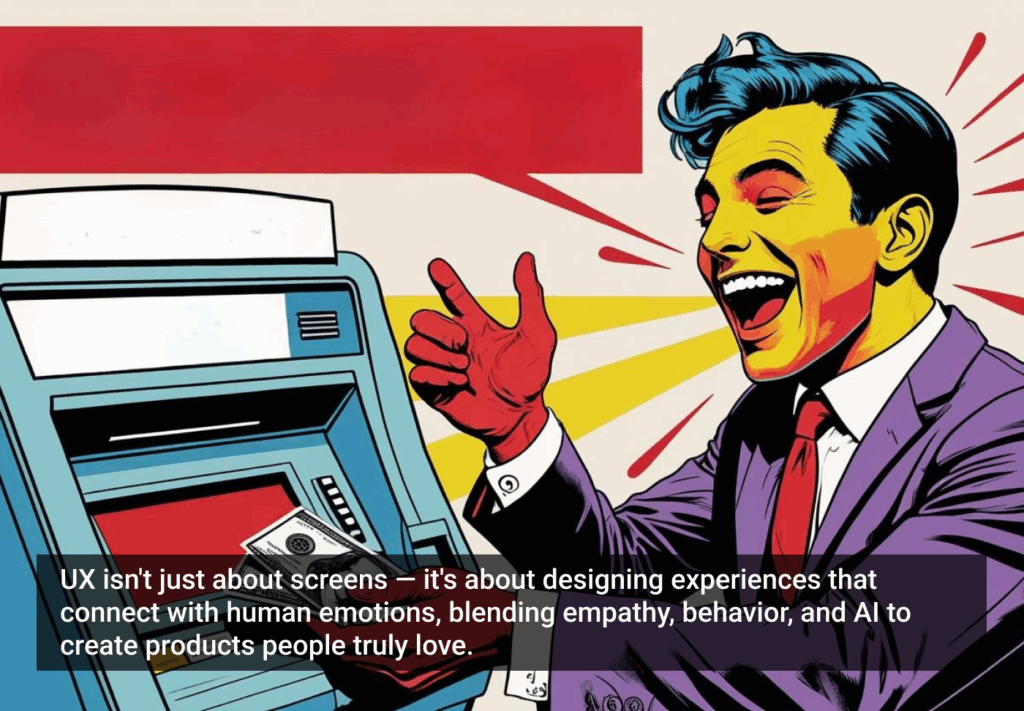It’s 2015. UX is no longer a new field, but it’s awash with new practitioners of wildly varying skill levels. This creates huge problems for employers and agencies alike as they attempt to guage the readiness of prospective hires. Certification is a popular option, but does it work? Are there better alternatives that address the problem of helping determine what it means to be a qualified UX practitioner? I posed these questions to a team of experts at Rosenfeld Media.
Do UX practitioners really need to get certified?
Dirk Knemeyer: There is a gap between a university education—which in my experience is almost always insufficient in producing someone ready to be a practicing designer without additional apprenticeship—and an experienced and capable designer. Professional training is needed to fill the gap. The “certification” aspect of it gives the student some kind of imprimatur as well as helps justify a potentially big spend when it is employer-provided.
I don’t think any of us would argue against a training gap, but the notion of “certification” seems to get people prickly. I think it can help justify the training. It shouldn’t be needed but for many it is/would be.
Christina Wodtke: I’m with Leisa. UX is such a new title, and new designers are looking for ways to make their resume say “hire me” without going back to school for four years. As well, when I was working with General Assemb.ly to design their UX immersive curriculum, I met a lot of career changers. They might already have a degree in graphic design or psychology, but still needed to prove they had the practical skills a UX job requires as well. Many of the new schools offering certification are a kind of “finishing school.” They give you whatever skills your degree didn’t.
Peter Jones: I can’t answer this, as I don’t hear UX practitioners express this requirement. But then I teach in an MDes program at a design school, where a term costs less than a couple General Assemb.ly courses (because it’s Canada!).
Andy Polaine: By “certified,” I assume you mean UX certification, not being locked up in a psych ward?
Perhaps surprisingly, since I am a lecturer in higher education, I’m not that convinced by certification of any kind, even those offered by higher education institutions. What people make and do and how useful or valuable it is to an organisation is a far better marker of their abilities than a piece of paper that says they have completed course “X”. If you don’t know the tasks and the grading criteria of a course, you cannot really judge if it was any good or not. Certification, diplomas and degrees of all kinds teaches people how to pass courses that certify them. It’s no guarantee of great ability, though it does perhaps set a minimum threshold.
Russ Unger: According to one of the certifiers, it’s to “Increase your credibility and perceived competence among colleagues, clients, and managers.” (italics mine) The perception of competence could have strong appeal. However I’m not sure that a certification provides such a perception or that it actually provides any actual competency, since that particular certification provider doesn’t seem to be able to stand by the claim with anything more than ambiguous proclamations.
My question is: If a certification provider can’t provide you with anything other than potential perceptions about yourself, why would you want to invest in it? I worry that people may be getting hornswoggled with the promise—or perhaps the perception of a promise—of something that isn’t being delivered upon.
So it doesn’t help?
Russ Unger: In all the years of reviewing resumes and interviewing candidates, I’ve yet to see that a certification made a notable difference. Then again, I feel similarly about degrees in many cases. Further, who does it help? Is there an ROI for certification?
For the UX practitioner, will it help secure a certain type of job with a certain salary? Will it pay for itself? What about for employers? Does it offer them some security or the backing of some organization that can help out if and/or when there are UX-related lawsuits?
Jason CranfordTeague: And it depends on what you mean by “help.” Since most certifications are not testing talent but the student’s ability to regurgitate, they are a poor predictor of actual talent. Certification is the last thing I look at when considering an applicant.
The problem is that there are plenty of companies that look on certification as a barrier to entry for considering an application. HR staff—who may have no other way of judging an individual’s user experience skills—use certifications as a validation test. If you are not certified in something, then your application may be chucked out the window at this low level and never make it up the chain to the actual hiring manager.
Andy Polaine: I’m with Russ and Jason on this. I think it’s often used as a lazy way of culling resumés by HR staff. The problem here, then, is the hiring process and the knowledge of HR staff, not the candidates (and let’s not get started on recruiters). Someone who dropped out of a course and did something great on their own is quite likely to be way more useful and interesting to have on a project than someone who did all the right things they were told to do.
Christina Wodtke: If a certification is the only education a candidate has in the field, it’s not convincing to me as an employer. But if it is accompanied by a degree in design or a related field of human studies, I’m going to look twice at that candidate. To me, it speaks of an interest in keeping up, an awareness of what it takes to do the job, and a willingness to do the work.
Looking past certification itself what’s the specific problem we’re addressing here?
Victor Lombardi: We expect practitioners of any field that is sufficiently complex and important to demonstrate a minimum competency. Medicine and law are good examples. The certification doesn’t make people good doctors or lawyers, but it reduces the great harm they’re capable of. And the practitioners themselves may form organizations to organize the certification, but the certification is also recognized by the government.
And now that UX has the power to kill, and influence voting results, and driving behavior, I bet UX will eventually be regulated by the government. Will legislators regulate UX well? Would we be better served to self-organize something that the government could recognize?
Dirk Knemeyer: One thing certification could address is what exactly it is that different UX people do. There are many skills under the umbrella of UX and they range from very strategic to very tactical.
More, where one set of skills starts and another one stops is fuzzy at best, or at worst treated very differently from one place to the next. Certification done well by the right people or group has the potential to put some much-needed structure to the professional disciplines and practices splayed out under the rubric of UX.
I think this would ultimately be good for the UX community, and immediately good for the rest of product/engineering/marketing/strategy trying to get their arms around how to best integrate with and leverage us.
Russ Unger: I think that, largely, the problem depends upon who you ask. I’d like to have a better understanding of what the organizations who send staff members to get these certifications believe they are getting in return. Likewise, I’d like to understand what people who get certifications believe that they will get and follow that up with what they believe they’ve gotten after some period of time has passed. If it provides some security, opens some doors, provides some political strength, then maybe it’s not as not bad as I’m inclined to think given my experience.
Jason CranfordTeague: It’s supposed to be a way to legitimize and endorse training to give potential employers confidence that the person in question has mastered certain skills to a level as evaluated by expert practitioners. Think of two surgeons. Who would you be more likely to employ for your surgery, the one who was board certified or the one who was not?
But a certification system does not apply as readily to softer more esoteric creative skills, especially since this is a field that is still quickly evolving with old techniques constantly discarded. It would be like choosing a surgeon in the middle ages, where the experts still use leeches. User experience techniques are still pretty primitive, but improving all the time. Fixing them with “certification” tends to enshrine the current way of doing things.
Andy Polaine: I’m not really sure certification serves anything other than administrative comfort and professional protectionism. The doctor and lawyer examples are always cited, yet there are plenty of cases of doctors and lawyers causing great harm, despite their certifications. To answer Jason’s question about the two surgeons in the same context as UX, I would be more likely to go for the surgeon who could show me the cases in which she helped people, certification or not. It’s because surgeons cannot show their “portfolio” that we have to blindly trust in their certification, which is quite ridiculous when you think about it.
The problem that any certification tries to address is, “how can I know this person isn’t an incompetent idiot before I hire them?” As we know from doctors, lawyers and almost every other trade, you don’t ever really know. Certification might point you in the right direction, but it could just as well be misleading.
Christina Wodtke: It addresses two problems. The first is the employer’s. I’ve been hired by several companies to help them figure out how to hire designers. Just as with engineering, it’s hard to know what makes a good designer. What skills should they have? How to assess their competence? You can tell if you like a portfolio piece, but what else should you know? A certificate from a respected organization says “This person has the core skills to do this job.” Secondly, as I said before, it’s a way for a person with little experience or missing key skills to get the skills and prove on their resume they have them.
So should we wash our hands of certification altogether?
Andy Polaine: Certifications are just like currency: they’re only worth what people think they’re worth, not what they suppose to represent (I can’t go to the Bank of England and get my gold anymore). I don’t really rate most degree awards either—in our industry, the work is what counts and I think that’s true in every profession.
“Certifications are like currency: they’re only worth what people think they’re worth” -@apolaine
Jason CranfordTeague: There has to be a better way of evaluating candidates, but the current system of ad hoc certifications is not it.
Christina Wodtke: Certification of discrete skills is helpful. When I was in college, I went to bartending school and got a certificate. Anyone hiring me could reasonably expect I could make a martini and a manhattan to current standards. There is no reason a skill or a set of skills in UXD can’t be certified; for example, usability testing or prototyping.
As a an employer, seeing a certificate on a resume would tell me this candidate was committed to keeping up with new techniques. I’d consider it a good sign. However a “certified” UX professional… what does that even mean, since we can’t even agree what skills are necessary to be a UX designer? Some folks even say UX design doesn’t exist. And you’re going to certify it? I’m suspicious.
Russ Unger: Has anyone asked people with certifications if they think that they’re valuable? You know, instead of those of us without them and with opinions about their value. I think that would be really beneficial to know and might just get me, at the very least, to shut up about it.
Is the issue about how this panel feels about certification or is it about how people with certifications feel about having them? Do they gain confidence? Do they feel like they stand a chance at positions that they were not considered for before? Would they do it again?
I think that people with certifications are the missing voice here.
That’s a good point, Russ. But we’ll save that for another panel. Let’s finish with one more question: if certification isn’t really the issue, what should we be talking about instead?
Christina Wodtke: Certification is just a way to assure you have learned the thing taught. I dislike certification as a whip to “keep out those fake designers” which it is often positioned as. When classicly trained designers demand certification, they are often taking a position against self-taught designers. When they take a position against it, it’s because no certification can provide the kind of education a liberal arts education can. Certification teaches and validates skills, but doesn’t give students the history and critical thinking a practicing designer needs.
What we need to talk about instead is, how do we need the newly expanded market demand for design? How do we make sure new designers have the key skills to be effective? What are those skills? What is that body of knowledge? And how can we help employers evaluate the designers they need to hire? Let’s talk about education, not certification.
Peter Jones: Design fields get their life from developing and mentoring new practices in different contexts. Like Service Design, which we might consider moving into as advisors and trainers. SD is “owned” by the overpriced SDN, an organization I can’t even afford to join. (I DO belong to also un-cheap Design Management Institute, but then I’m old school.)
A high-quality training program would of course provide completion certificates that actually mean something. Rather than certifying a discipline, I would prefer we certify completion of education programs.
As far as who should certify, that’s best left to professional societies. In all meaningful vocations, this is the case; you don’t see private engineering certifications, or even competitors to PMI’s project management PMP. When anyone can certify, it doesn’t mean much except maybe to a naive employer. And for us, it risks the appearance of attempting to capture and parse out a body of knowledge for private value.
Andy Polaine: That’s a big question! But sticking to UX or service design, more public examples of what is good and what is considered excellent work by peers and clients would be useful as would counter-examples of what is sub-par or downright awful.
Like what these experts had to say? You can have them bring their brains to you. Dirk Knemeyer, Christina Wodtke, Peter Jones, Andy Polaine, Russ Unger, Jason CranfordTeague, and Victor Lombardi are available for consulting and training through Rosenfeld Media.
Rosenfeld Media is a sponsor of the Design for Experience awards, presented by UX Magazine. For a limited time, anyone who makes a valid recommendation to the DfE awards will get a free Rosenfeld book download. Click here for more details.
Illustration of certificate courtesy Shutterstock.







